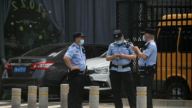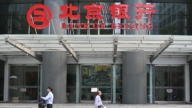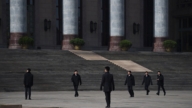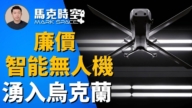【新唐人2011年9月29日訊】中國上海地鐵10號線發生嚴重追撞事故,造成至少271人輕重傷,當局初步判定,肇事原因是訊號系統故障,這起事故可說是723甬溫事故的翻版。上海地鐵追尾,再次引發中國鐵路安全的憂慮。
9月27號下午2點51分,上海地鐵10號線信號設備發生故障,豫園往老西門方向的區間隧道內5號車追尾16號車,造成271人受傷,所幸無人員死亡。
根據運營方公開的信息,事故發生在信號系統故障後採用人工調度,手動開車,正常操作下應該可以保證安全,卻還是發生事故,連專家都表示,無法理解。
詹工程師:「如果人工調度系統可靠的話,可行的話,世界這麼多國家地鐵,不需要上ITP系統,也不要用自動調撥,現在就是說自動系統不行了,我們就改人工系統,這個決策本身也是有問題。那個事故(溫州動車事故)調查也沒有出來,而且好像一開始說了是信號問題,後來又說不是,所以還在遮遮掩掩,這塊又出了問題了,實際上就是拿人的生命來作實驗了。」
近年中國在鐵道部和幾家國有公司推動下,以創記錄的速度擴建了鐵路和城市軌道交通網絡。上海地鐵10號線的信號供應商為卡斯柯,也是溫州動車事故和兩年前撞車的1號線供應商,在建專案包括上海軌道交通10號線信號系統、廣州地鐵6號線信號系統、深圳地鐵5號線等。
上海居民施小姐:「不只是一次啊,只不過當時,比如說在3月份、4月份、5月份時候,他說系統問題,(地鐵車輛)會突然間停,停個4~5分鐘再開,上面寫是因為信號故障問題,其實就是同樣一個問題發生。之前其實就可以避免的,之前就可以有效進行反覆的實驗、勘測,或者怎麼樣去可以做到控制的。」
公開資料顯示,卡斯柯是央企「通號集團」旗下子公司,「通號集團」原隸屬鐵道部,2000年與鐵道部脫鉤後劃入國資委管轄,旗下還有通號院等十幾家公司。鐵道部、通號集團以及一系列涉及高鐵產業的公司之間有著千絲萬縷的聯繫。
前大陸地鐵工程師詹先生:「在中國大陸來講,現在每一公里地鐵造價都是幾億元人民幣,比如說地鐵車輛的採購,採購國外的零部件,會吃回扣,從國內工程的分包,會吃回扣,誰給的回扣大,誰就能拿到工程,層層轉包,所以每一層都會扒一層皮。這個錢也是鉅額的。進口採購,回扣更是鉅額的。拿到這個合同,誰也不知道這個合同到底是多少錢?可能有百分之多少的回扣,可能就進了個人腰包了。」
據大陸媒體報導,鐵道部副總工程師張曙光,在美國和瑞士的銀行坐擁28億美元存款,很多錢都是外國供應商「上供」的。
大陸工程管理工程師洪先生:「因為我們這都是政府投資工程,但在中國的話又是長官意識比較強烈,所以說很多制度都只能流於形式,無法用完善的制度來減少事故的發生。」
《大紀元新聞網》評論作者王華表示:「這些年中國經濟上來了,不過從一連串的鐵道事故中可以看出,在中國對人的培訓、管理是不被重視的,這也說明瞭問題關鍵還是在人,才會出現豆腐渣信號設備、人工作業疏失,人為的因素導致了各層原因的出現。」
新唐人記者梁欣、李庭、黎安安採訪報導。
Subway Collision Due To Management Issues?
China』s Shanghai Metro Line 10 encountered
a serious accident, injuring at least 271 people.
The reason is claimed to be signal system failure.
The accident is similar to the 7/23 train accident in Wenzhou.
The Shanghai Metro rear-end collision once again
raised concerns over China’s railway safety.
At 2:51 P.M. on September 27, Shanghai Metro Line 10
encountered signal equipment failure,
Car 5 crashed into the rear end of Car 16
in the tunnel from Yuyuan to Old Ximen.
During the crash were injured 271 people,
but fortunately there were no casualties.
According to public information, the accident occurred after
a signal system failure due to manual scheduling and starting.
Under normal operation, it should be able to guarantee safety,
but the accident still occurred. Experts can』t understand why.
Zhan (Engineer): “If the manual scheduling system is reliable
and feasible, there is no need of the ITP system,
or automated scheduling. They switched to manual
scheduling after failure of the automated system.
The decision itself is problematic. Reports are yet to be
released on that accident (Wenzhou train crash).
It was said to be signal problem at the beginning,
but later on, this was denied.
They try to be secretive. Now it has problems again.
They are experimenting with human lifes."
In recent years, driven by China’s Ministry of Railways and
several state-owned companies, China expanded its railway
and urban rail transport network at a record speed.
The signal system provider of Shanghai Metro Line 10
is CASCO, the same in the Wenzhou train crash and Line 1
crash two years ago. Their signal system under construction
included Shanghai Metro Line 10, Guangzhou Metro Line 6,
and Shenzhen Metro Line 5.
Miss Shi (Shanghai resident): “This is not just one-off case.
In March, April, May it was said to have system problems,
subway cars will suddenly stop,
standing there for 4 to 5 minutes.
It was written to be signal failure, but the same problem
occurs. This should』ve been avoided.
If beforehand they effectively carried out repeated trials
and investigations to get it under control."
According to public information, CASCO is a subsidiary
to the central enterprise Tonghao Group,
which is under the umbrella of the Ministry of Railways.
In 2000, Tonghao Group was assigned
to State Assets Administration Committee,
which also controlled more than a dozen companies
including Tonghao Institute. Ministry of Railways
and Tonghao Group are inextricably linked
to a number of groups and companies
in the high-speed rail industry.
Zhan (Engineer): “In mainland China, it costs several hundred
million RMB per kilometer of subway.
Subway cars and foreign parts procurement will have kickbacks,
domestic sub-projects have kickbacks too.
The one who offering the highest kickbacks will obtain the tender.
There are kickbacks between layers of subcontractors.
The amount is huge. Import procurement rebate is huge too.
Since this contract was put out, nobody knows how much
it is for, or what percentage of the kickback there might be.
The kickback may go into the wallet of individuals."
According to mainland China media, Zhang Shuguang,
Deputy Chief Engineer of the Ministry of Railways,
had $2.8 billion deposited in banks in the United States and
Switzerland. Most of the money was from foreign suppliers.
Mr. Hong (Engineering Management):
“We are all government-funded projects.
In China the power concept is strong, many systems can only
be a mere formality, there are no good system to reduce accidents."
Wang Hua (News Network commentator, Epoch Times):
“In recent years China’s economy went up,
But from a series of railway accidents, we can see the training
and management are not taken seriously in China.
The key issue is still the human factor, so there will still be
shoddy signal equipment, and negligent operations.
Human factors led to layers of causes (of the accidents)."
NTD reporters Liang Xin, Li Ting and Li Anan.






























